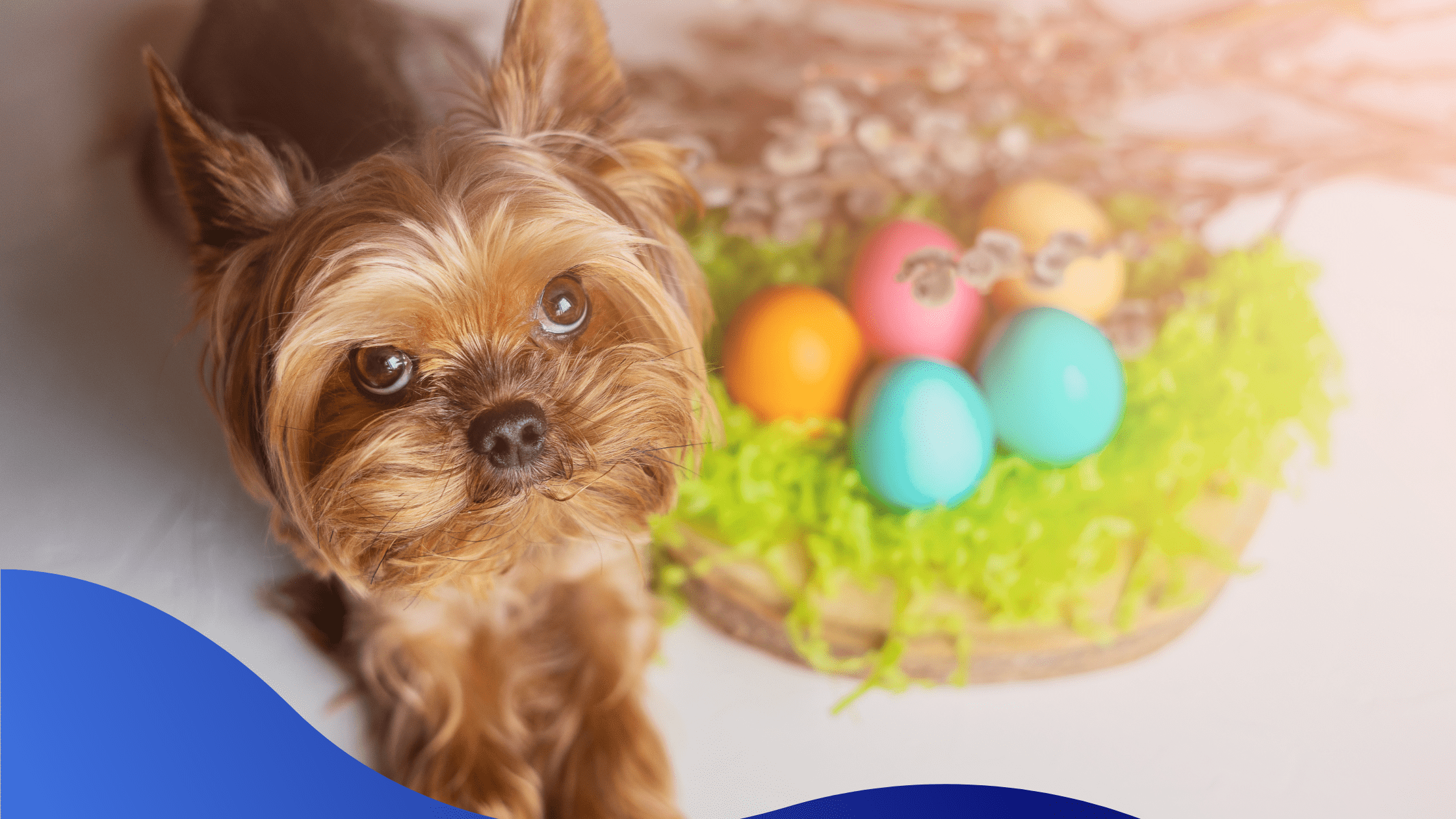Delve into essential Easter healthcare tips to help you navigate this festive season while keeping your pets safe and healthy. From common hazards to precautionary measures, we’ll cover everything you need to know to ensure a harmonious and worry-free Easter for both you and your four-legged family members.
As the Easter season approaches, households buzz with excitement, preparation, and festivities. Amidst the joyous celebrations, it’s crucial not to overlook the safety and well-being of our beloved pets. Just like any holiday, Easter brings its own set of potential hazards for our furry companions, from tempting treats to decorative dangers.
Join us as we explore practical advice on avoiding toxic treats, pet-proofing decorations, and creating a stress-free environment for your pets during the Easter celebrations. Let’s ensure that this holiday season is filled with joy, love, and peace of mind for every member of your family, including the ones with wagging tails and whiskers.
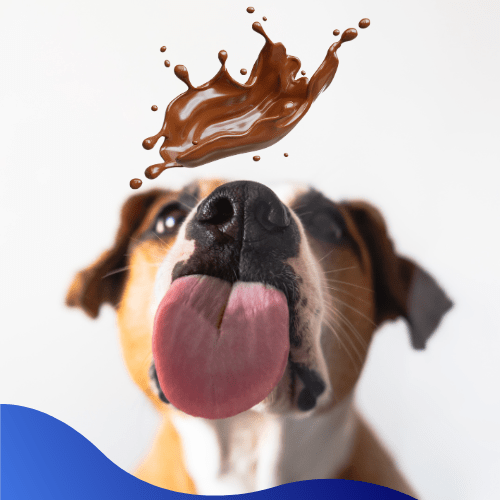
Keep Away From Chocolate
Chocolate is toxic to pets, especially dogs and cats. Ensure all Easter chocolates, candies, and treats are kept out of the reach of pets. The darker the chocolate, the more dangerous it is.
Watch Out For Candy Rappers
Pets might be attracted to the shiny wrappers of Easter candies, which can pose a choking hazard or cause intestinal blockages if ingested. Keep these out of their reach.
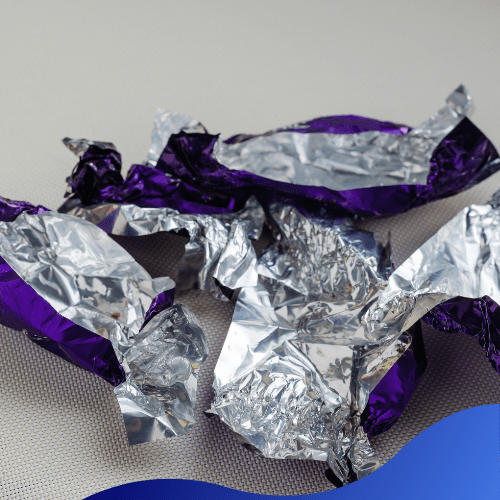

Avoid Toxic Plants
Some Easter plants, such as lilies, tulips, and daffodils, can be toxic to pets if ingested. Keep these plants away from areas where your pets roam.
Easter Grass Caution
The plastic grass used in Easter baskets can be appealing to pets but is hazardous if ingested. Opt for safer alternatives like tissue paper or grass made from natural materials.
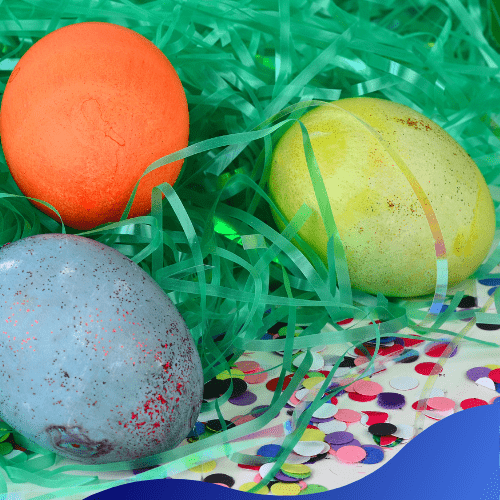
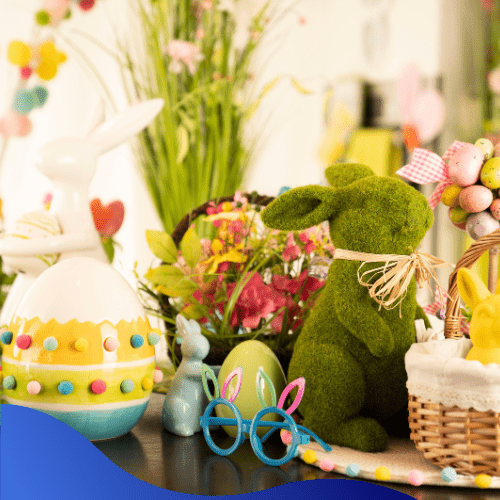
Monitor Decorations
Decorations like Easter eggs, plastic toys, and other festive items can pose choking hazards or cause intestinal blockages if swallowed. Keep decorations out of reach or choose pet-safe alternatives.
Be Mindful Of Easter Meals
Rich and fatty foods commonly served during Easter can upset your pet’s stomach or even cause pancreatitis. Avoid feeding them table scraps and stick to their regular diet.

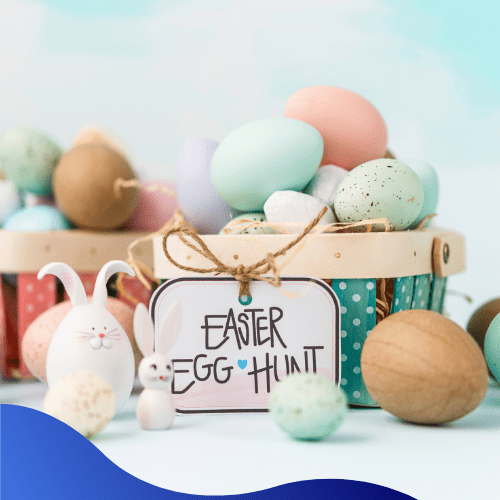
Supervise Easter Egg Hunts
If you’re hiding Easter eggs, ensure all are found and accounted for, as pets might be tempted to investigate and potentially ingest them, including plastic eggs.
Provide A Safe Space
Easter gatherings can be overwhelming for pets with lots of noise and activity. Provide a quiet, safe space where they can retreat if they feel stressed.


Plan For Emergency Care
In case of accidental ingestion of toxic substances or any health emergencies, know the location and contact information for an emergency veterinary clinic that’s open during the holidays.
We hope you found this blog useful, thank you for reading, until next time…

